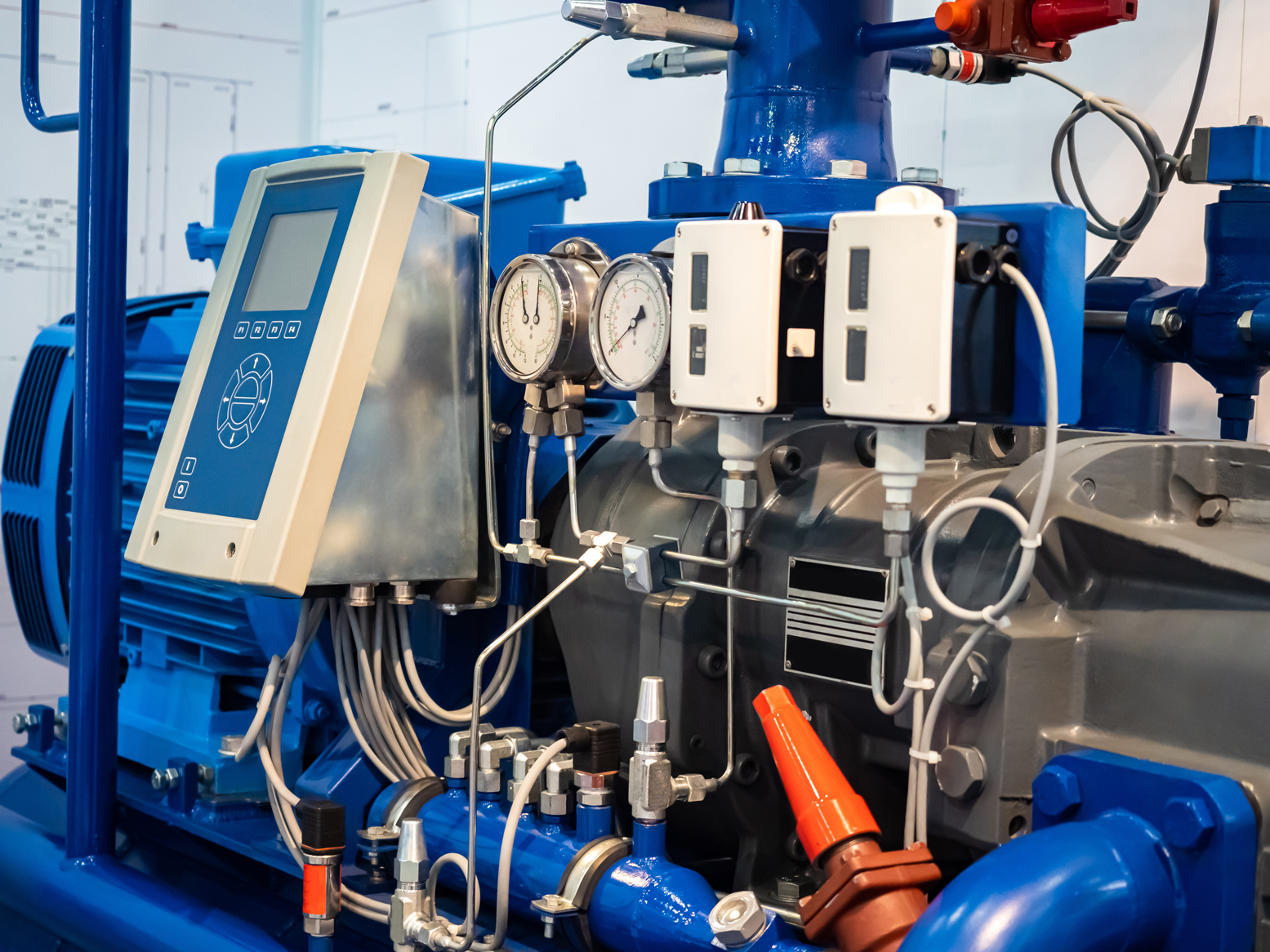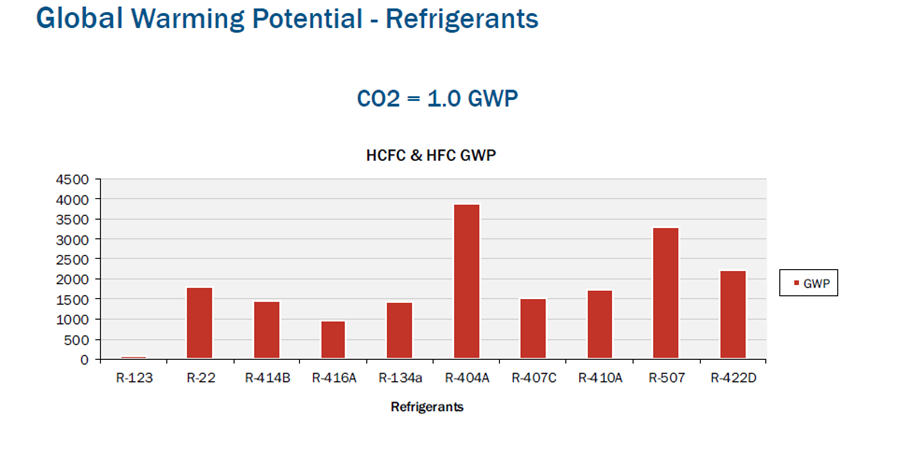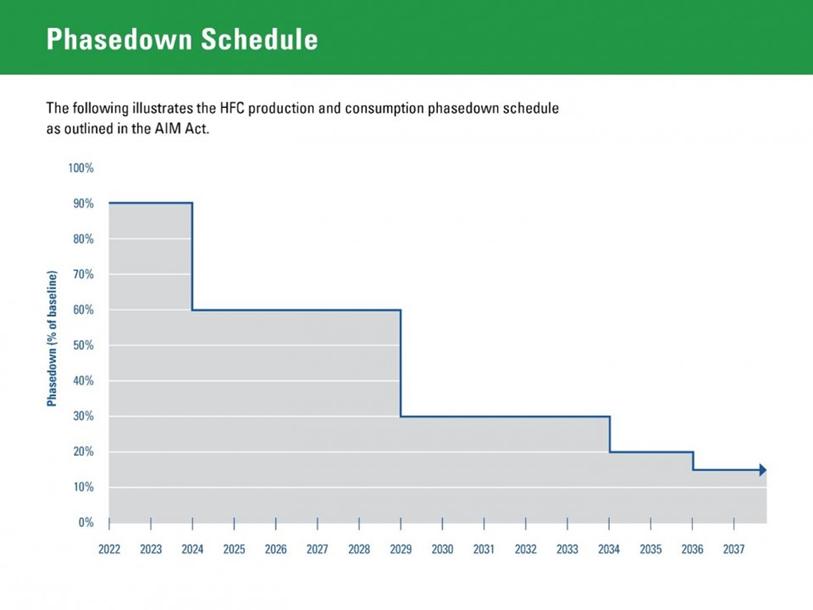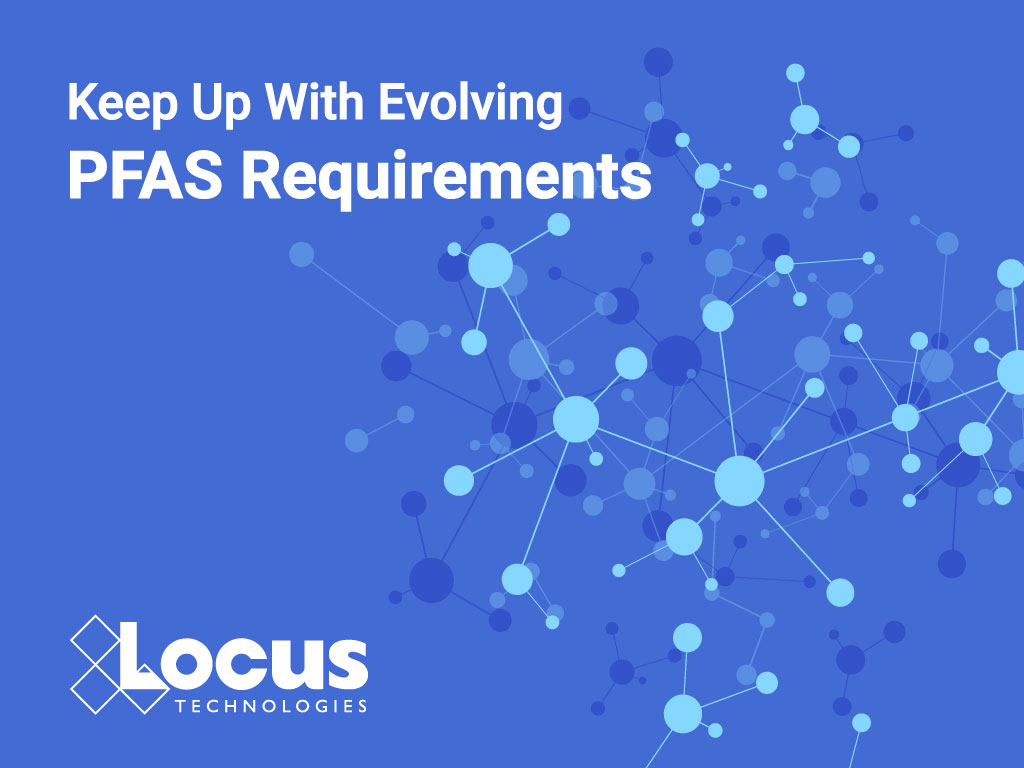Get ahead of evolving refrigerant requirements

Refrigerants used in air conditioning and refrigeration systems have evolved over the decades – from stratospheric ozone depleters to global warming contributors.

The Montreal Protocol international treaty has been instrumental in shepherding the majority of nations to transition to less harmful refrigerants. Phase-outs in production and use are underway to reduce emissions and to foster new generations of refrigerants and technologies.

At no time in history has the entire civilized planet been focused on such a singular objective. All industries and organizations are being affected. Facility owners, environmental managers, facility managers, contractors, technicians, and even homeowners are being impacted by the changes happening right now.
The transition to refrigerants with low-to-no global warming potential (GWP) is not without challenges. The substitutes can have mild flammability, high flammability, or even include “forever chemicals” like PFAS (Perfluoroalkyl and polyfluoroalkyl substances). The European Union is proposing bans on certain refrigerants with PFAS, as are certain US States. At the federal level PFAS bans may be considered in future rulemaking.
An interesting side note on a potential solution: CO2, a primary greenhouse gas, is being deployed as a refrigerant! It is currently being used in thousands of facilities and grocery stores across the globe. The US Department of Energy is funding research into CO2 heat pump systems that enable the delivery of heating, cooling and domestic hot water at 100°C.
Federal and State-based regulations are now focused on restricting the manufacture and sale of systems that use high-GWP refrigerants, as well as minimizing emissions (fixing leaks) from existing systems.
Non-compliance is expensive. Clean Air Act civil penalties (fines) have increased dramatically, and supplemental environmental projects (SEPs) can add up to tens of millions of dollars.

S. Settles with Trident Seafoods Corporation to Reduce Ozone-Depleting Emissions | US EPA
With so much change occurring in the regulatory landscape and in technology, affected organizations, industries, and individuals need reliable resources. Robust data management tools and deep subject matter expertise are critical components to meeting the challenges of today and tomorrow.
Locus Technologies offers cutting-edge solutions that revolutionize data management, empowering organizations to navigate challenges and unlock new opportunities for success. The Locus Platform includes the purpose-built Refrigerant Management application, featuring:
- Appliance/equipment inventory management by refrigerant type and CO2e (carbon footprint).
- Refrigerant inventory tracking, cradle-to-grave.
- Service Records – new installations, leak repairs, verifications tests, leak inspections, conversions, disposals.
- Leak Rate calculations and Alert Notifications.
- Chronically Leaking Systems annual report for EPA.
- Refrigerant Emissions reports by refrigerant type and CO2e.
The application is complemented by Locus’ Refrigerant Compliance Services provided by in-house experts to include:
- Refrigerant compliance management training for all affected personnel.
- Certification in partnership with the National Registry of Environmental Professionals (CRCM – Certified Refrigerant Compliance Manager | NREP).
- Mock-EPA audits to proactively find compliance gaps, recommend corrective action, and mentor personnel in self-audit skills.


